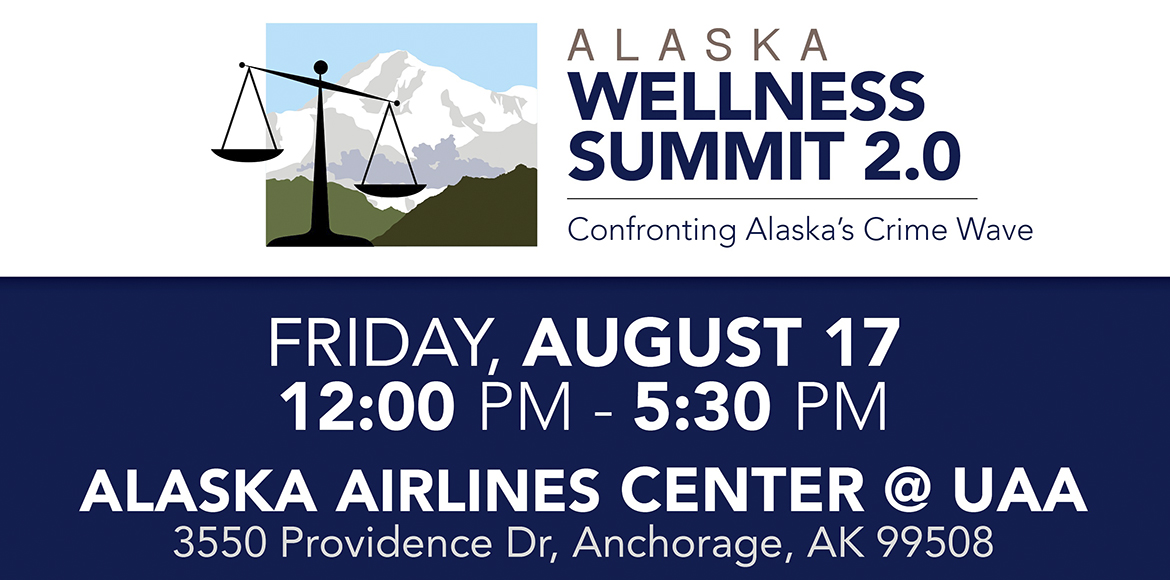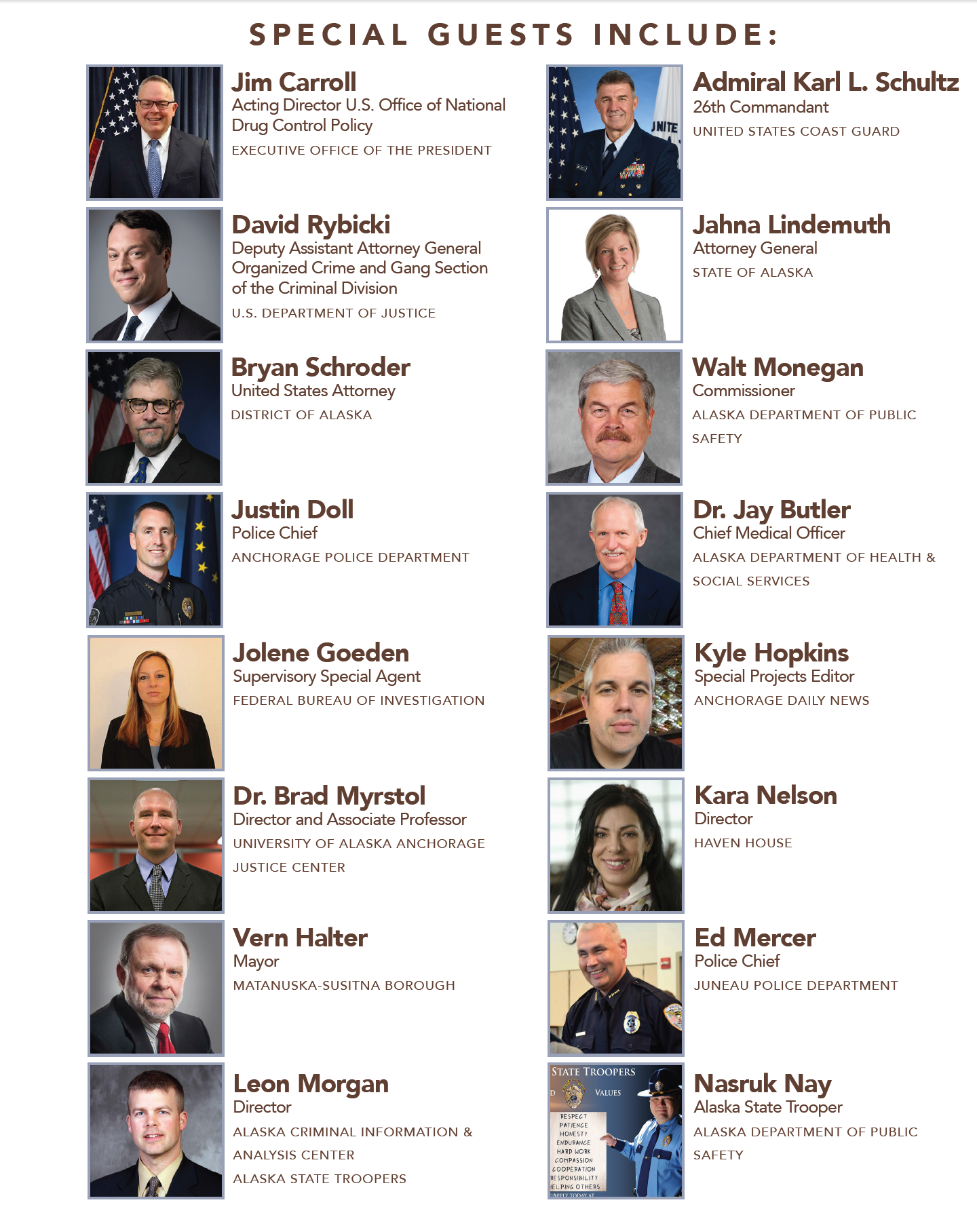Alaska Wellness Summit 2.0: Confronting Alaska's Crime Wave

Two years ago, I had the honor of convening the Alaska Wellness Summit: Conquering the Opioid Crisis, an important gathering of federal, state and local community leaders dedicated to tackling the many challenges associated with the growing opioid and heroin epidemic. That summit, which largely focused on issues of addiction, recovery and community, was very productive – with hundreds of Alaskans gathering to listen, gain inspiration, learn and exchange ideas. Federal officials from several different agencies attended to hear the many obstacles Alaskans face when in recovery, as well as witness the indomitable spirit of Alaskans who have overcome those obstacles.
On August 17, 2018, I held another Wellness Summit – this time focused not only on our addiction epidemic, but on drug trafficking and the associated crime wave that is victimizing so many Alaskans. The Alaska Wellness Summit 2.0: Confronting Alaska’s Crime Wave once again feature a prominent group of federal, state and local leaders and stakeholders to build public awareness, identify opportunities for coordination and cooperation, and highlight Alaska’s unique public safety challenges with federal officials.
This 5-hour town hall style summit, co-hosted by the University of Alaska Anchorage College of Health, was open to the public and included more than 200 attendees and countless others online. We had four panel discussions, keynote addresses by key federal partners and most importantly very significant public engagement and questions. Overall it was a very successful and engaging day, with lots of input and suggestions from Alaskans that my office and our federal partners will certainly be taking back to DC.
The Director of the Office of National Drug Control Policy, Jim Carroll, joined the discussion as a keynote speaker to outline Alaska’s recent High Intensity Drug Trafficking Area (HIDTA) designation, which will help facilitate greater cooperation, criminal case coordination and information sharing among local, tribal, state and federal agencies currently engaged in counter-drug trafficking operations in Alaska.
The Commandant of the United States Coast Guard, Admiral Karl Schultz, gave a keynote address on the Coast Guard’s role as our nation’s first line of defense against drug smugglers seeking to bring illegal substances into the United States.
David Rybicki, the Deputy Assistant Attorney General at the Department of Justice in charge of the Criminal Division’s Organized Crime and Gang Section, also spoke on areas relating to violent crime, gang violence, anti-opioid initiatives and combatting threats posed to U.S. citizens.
The summit also include a number of senior Alaska officials and community leaders, including: local mayors, law enforcement, public safety officials, community stakeholders, and media:
- Jahna Lindemuth – Alaska Attorney General
- Bryan Schroder – U.S. Attorney for the District of Alaska
- Walt Monegan – Alaska Commissioner of Public Safety
- Justin Doll – Anchorage Police Chief
- Jolene Goeden – Supervisory Special Agent, Federal Bureau of Investigation
- Ed Mercer – Juneau Police Chief
- Vern Halter – Mat-Su Borough Mayor
- Dr. Brad Myrstol – Associate Professor and Director of the UAA Justice Center
- Dr. Jay Butler – Chief Medical Officer, Alaska Department of Health and Human Services
- Kyle Hopkins – Special Projects Editor, Anchorage Daily News
- Leon Morgan – Director of the Alaska Criminal Information and Analysis Center, Alaska State Troopers
- Kara Nelson – Director of Haven House
- Nasruk Nay – Alaska State Trooper, Alaska Department of Public Safety
*** For a detailed agenda, click here. ***
There is no one solution to these challenges, particularly the issues surrounding the opioid and heroin epidemic and the influx of drugs coming into our state, but one thing is clear – it’s going to take collaboration among local, state and federal partners to tackle them. We've already seen certain progress, with the recent High Intensity Drug Trafficking Area (HIDTA) designation Alaska received (which will bring in much needed funding to tackle drug trafficking and associated crime), and we'll continue working on more.
Sincerely,


